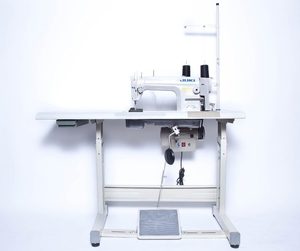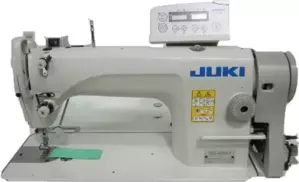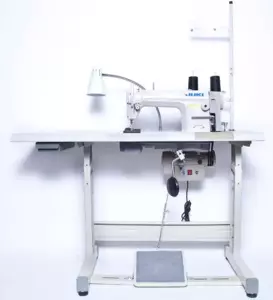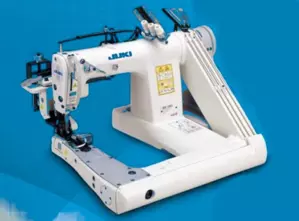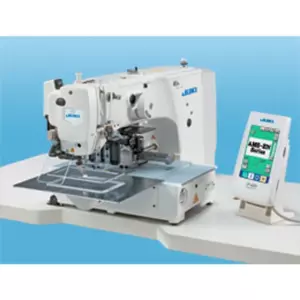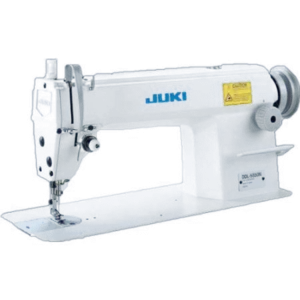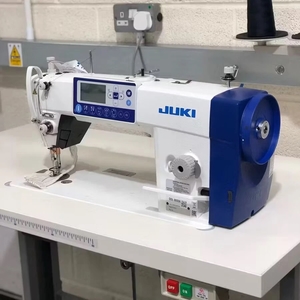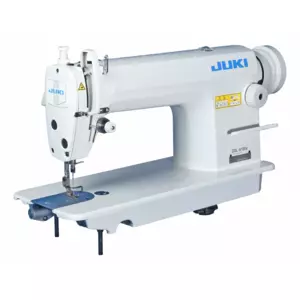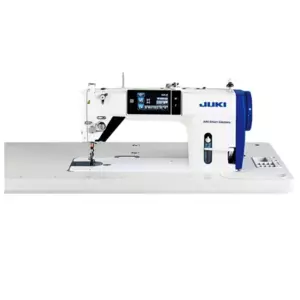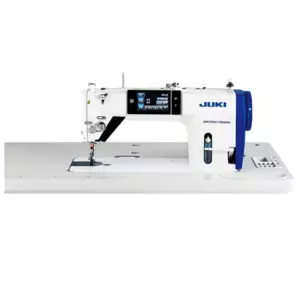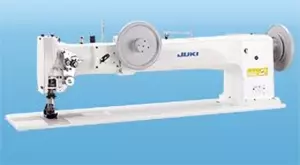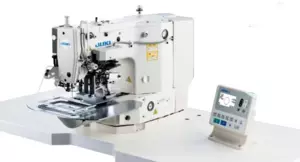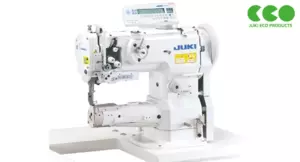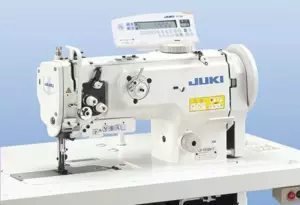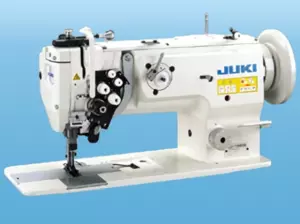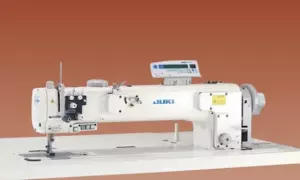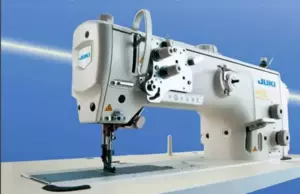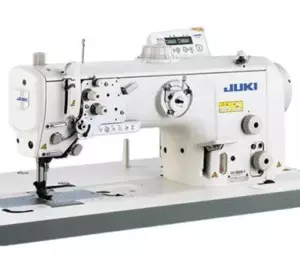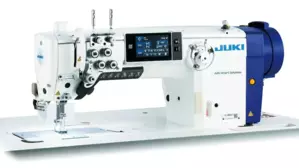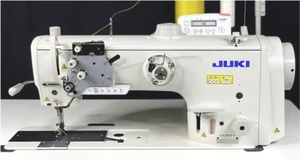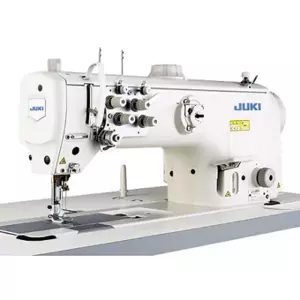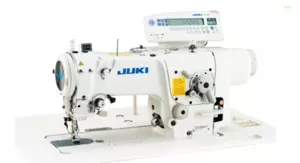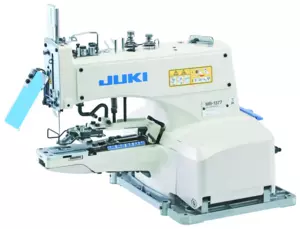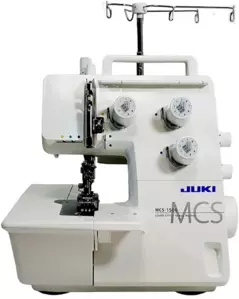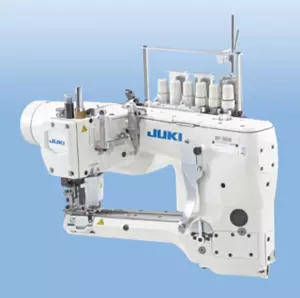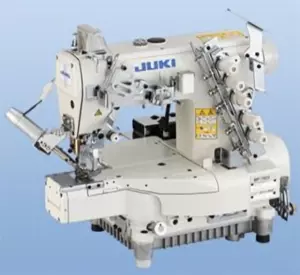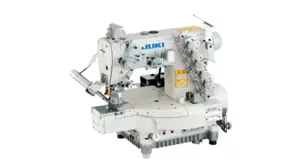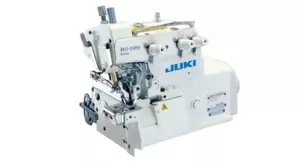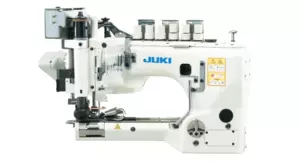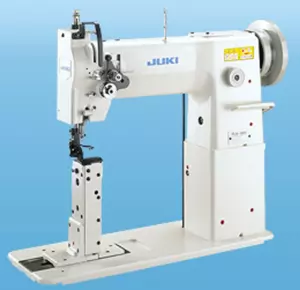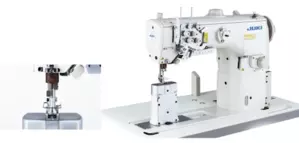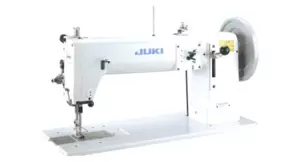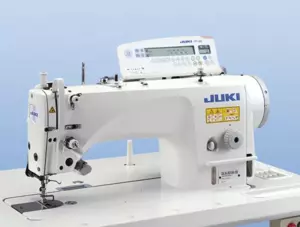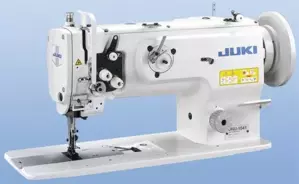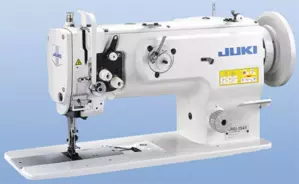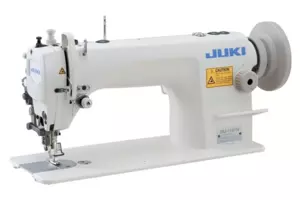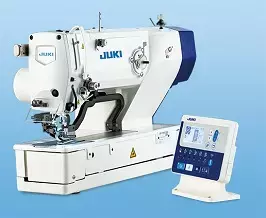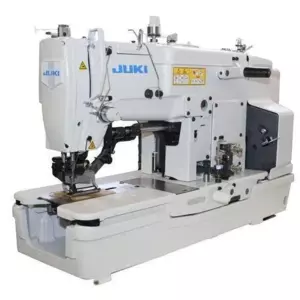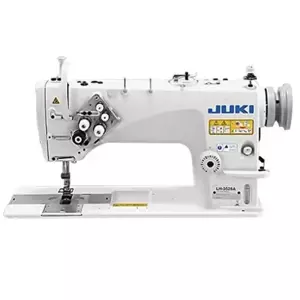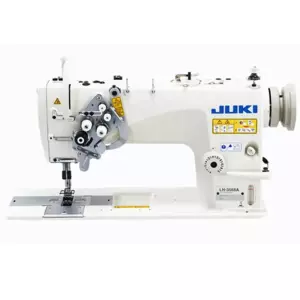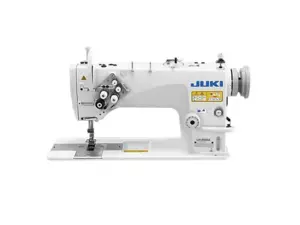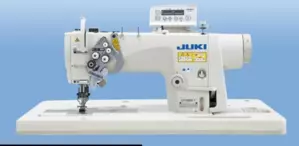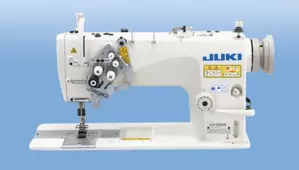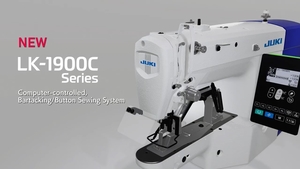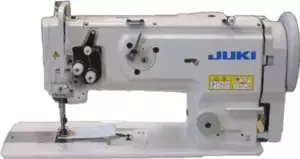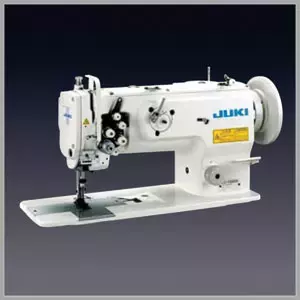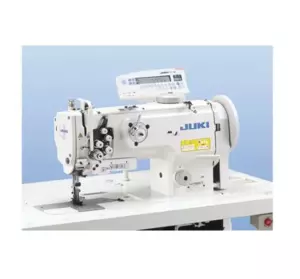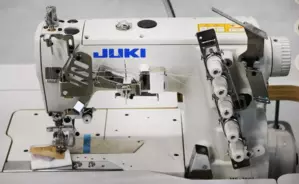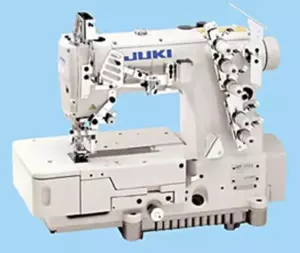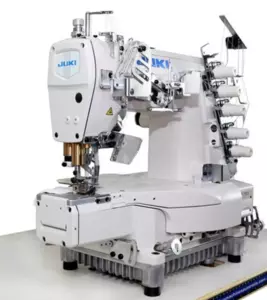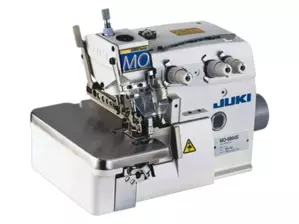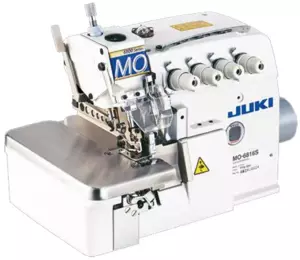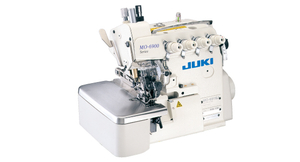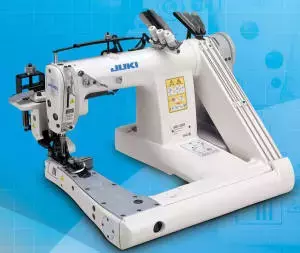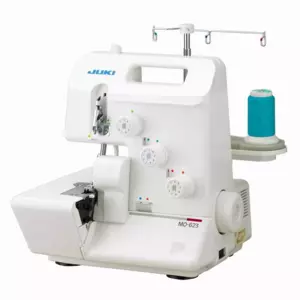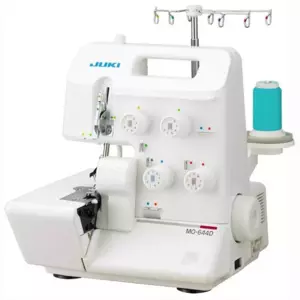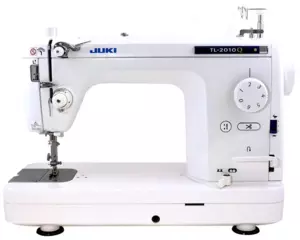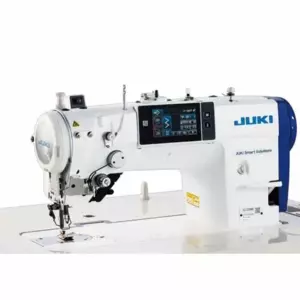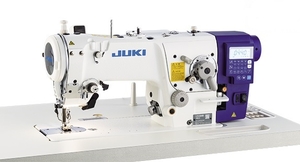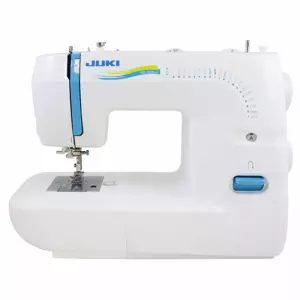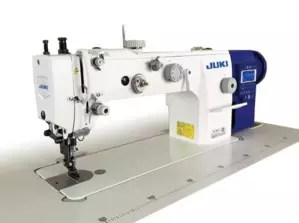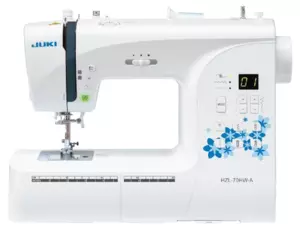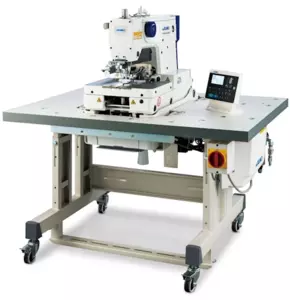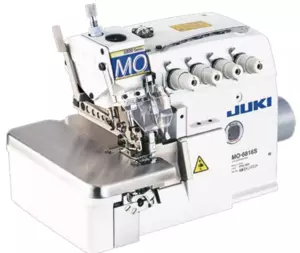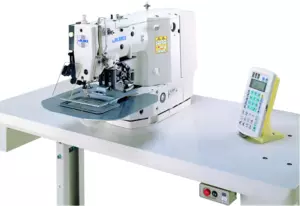JUKI DDL-8700 High-Speed Single Needle Straight Lockstitch Industrial Sewing Machine With Table and Servo Motor
Our Price:
$999.97
Market Price: $1099.99
Save: $100.02 per unit
Sold Out
JUKI DDL-8700-7 Single Needle Drop Feed Automatic Industrial Sewing Machine With Table and Servo Motor
Our Price:
$2099.95
Market Price: $2699.99
Save: $600.04 per unit
Sold Out
JUKI DDL-8700-H Heavy-Weight High-Speed Single Needle Straight Lockstitch Industrial Sewing Machine With Table and Servo Motor
Our Price:
$999.97
Market Price: $1226.00
Save: $226.03 per unit
Sold Out
JUKI MS-1261 /V045 Feed-off-the-arm Double Chainstitch Industrial Sewing Machine With Table And Servo Motor
Our Price:
$8999.95
Sold Out
JUKI AMS-210ENHL-1306 Programmable Pattern Tacker With Table
Our Price:
$18990.95
Market Price: $19599.00
Save: $608.05 per unit
Sold Out
JUKI AMS-210ENHL-1510 Programmable Pattern Tacker With Table and Servo Motor
Our Price:
$19839.95
Market Price: $21689.98
Save: $1850.03 per unit
Sold Out
JUKI DDL-5550N High-Speed Single Needle Lockstitch Industrial Sewing Machine With Table and Servo Motor
Our Price:
$1189.95
Market Price: $1999.00
Save: $809.05 per unit
Sold Out
Juki DDL-8000AS-MS Medium Direct-drive, Lockstitch USB Voice Thread Trimmer Direct Drive Industrial Sewing Machine Table
Our Price:
$1799.95
Market Price: $2200.00
Save: $400.05 per unit
Sold Out
Juki DDL-8000ASSH Heavy Direct-drive, Lockstitch USB Voice Thread Trimmer Direct Drive Industrial Sewing Machine Table
Our Price:
$1799.95
Market Price: $2200.00
Save: $400.05 per unit
Sold Out
JUKI DDL-8100E Single Needle Lockstitch Sewing Machine With Table and Servo Motor
Our Price:
$945.95
Market Price: $999.99
Save: $54.04 per unit
Sold Out
JUKI DDL-9000C-FMS Semi-Dry Head, Direct-Drive, 1-Needle Lockstitch Industrial Sewing Machine
Our Price:
$2799.95
Market Price: $3200.00
Save: $400.05 per unit
Sold Out
JUKI DDL-9000C-SMS-NB-AK154 High-Speed Direct Drive Industrial Sewing Machine With Automatic Trimmer, Table and Servo Motor
Our Price:
$2599.95
Market Price: $3200.00
Save: $600.05 per unit
Sold Out
JUKI LG-158 Series Long-arm Unison-feed Lockstitch Machine With Vertical-axis Large Hook With Table and Servo Motor
Our Price:
$16499.95
Sold Out
JUKI LS-1340 Series Cylinder Bed 1 Needle Lockstitch Industrial Sewing Machine with Table and Motor
Our Price:
$6099.95
Sold Out
Juki LU-1510N-7 Walking Foot Needle Feed Industrial Sewing Machine with Table and Servo Motor
Our Price:
$6679.97
Sold Out
JUKI LU-1565N 2 Needle Unison Feed Lockstitch Industrial Sewing Machine With Table and Servo Motor
Our Price:
$8099.95
Sold Out
JUKI LU-2200N-7 Series Long-arm Unison-feed Lockstitch Industrial Sewing Machine With Table and Servo Motor
Our Price:
$17999.95
Sold Out
JUKI LZ-2284A Series Zig Zag 3-Step Changeover Function Sewing Machine With Table, and Direct-drive Servo Motor
Our Price:
$6489.97
Sold Out
JUKI MF-7900 U-11 Series Industrial Sewing Machine With Table and Direct Drive Motor
Our Price:
$7999.99
Sold Out
JUKI MO-6914C 4-Thread Cylinder-Bed Overlock Machine With Table and Servo Motor
Our Price:
$4499.99
Sold Out
JUKI MS-3580 Series Feed-off-the-Arm 3 Needle Double Chainstitch Industrial Sewing Machine with Table and Motor
Our Price:
$9995.95
Sold Out
JUKI PL980 Series Post-Bed Lockstitch Industrial Sewing Machine With Table And Servo Motor
Our Price:
$5199.99
Sold Out
JUKI TNU-243U 1-needle Semi-long Flat Bed Lockstitch Industrial Sewing Machine With Table and Servo Motor
Our Price:
$9094.99
Sold Out
JUKI DLN-9010A-SH High-Speed Needle Feed Lockstitch Industrial Sewing Machine With Table and Servo Motor
Our Price:
$4499.96
Sold Out
JUKI DLN-9010A-SS High-Speed Needle Feed Lockstitch Industrial Sewing Machine With Table and Servo Motor
Our Price:
$4899.95
Sold Out
JUKI DNU-1541 Single Needle Walking Foot Lockstitch Industrial Sewing Machine With Table and Servo Motor
Our Price:
$2099.95
Market Price: $3200.00
Save: $1100.05 per unit
Sold Out
JUKI DNU-1541S Industrial Walking Foot Industrial Sewing Machine With Table and Servo Motor
Our Price:
$2199.95
Market Price: $3600.00
Save: $1400.05 per unit
Sold Out
JUKI DU-1181N Single Needle, Straight Stitch, Walking Foot Industrial Sewing Machine With Table and Servo Motor
Our Price:
$1649.97
Market Price: $2299.99
Save: $650.02 per unit
Sold Out
JUKI LBH-1790 Electronic Buttonhole Sewing Machine With Table And Servo Motor
Our Price:
$12499.95
Sold Out
JUKI LBH-783 1 Needle Lockstitch Buttonholing Industrial Sewing Machine With Table and Servo Motor
Our Price:
$9799.97
Sold Out
JUKI LH-3568 2 Needle Semi-Dry-Head Lockstitch Machine With Organized Split Needle Bar With Table and Servo Motor
Our Price:
$4199.95
Sold Out
JUKI LH-3578AGF Semi-Dry-Head 2-Needle, Lockstitch Industrial Sewing Machine With Table and Servo Motor
Our Price:
$4469.95
Sold Out
JUKI LK-1900-C Computer Controlled High Speed Bartacking Industrial Sewing Machine With Table and Servo Motor
Our Price:
$6299.95
Market Price: $6900.00
Save: $600.05 per unit
Sold Out
JUKI LU-1508NH Extra Heavy Duty Single Needle Unison Feed Lock Stitch Machine With Vertical-axis Large Hook, Table, and Servo Motor
Our Price:
$3799.95
Market Price: $3999.00
Save: $199.05 per unit
Sold Out
JUKI LU-1508NS Heavy Duty Single Needle Unison Feed Lockstitch Machine With Vertical-axis Large Hook, Table, and Servo Motor
Our Price:
$3399.95
Market Price: $4299.99
Save: $900.04 per unit
Sold Out
JUKI LU-1560N 2 Needle Unison Feed Lockstitch Industrial Sewing Machine With Table and Servo Motor
Our Price:
$4799.97
Market Price: $4999.99
Save: $200.02 per unit
Sold Out
JUKI LU-1560N-7 2 Needle Unison Feed Lockstitch Industrial Sewing Machine With Table and Servo Motor
Our Price:
$10899.97
Sold Out
Juki MB-1373 Single Thread Chain Button Sewing Industrial Machine With Table and Servo Motor
Our Price:
$4499.96
Sold Out
JUKI MF-7523 3 Needle Coverstitch Industrial Sewing Machine With Table and Servo Motor
Our Price:
$3199.95
Sold Out
JUKI MF-7923 3 Needle High-Speed Free-Arm Top and Bottom Coverstitch, Cylinder Bed Industrial Sewing Machine With Table and Servo Motor
Our Price:
$3999.95
Market Price: $3999.99
Save: $0.04 per unit
Sold Out
JUKI MO-6804S-0A4-150 Semi-Dry-Head High Speed Overlock Safety Switch Industrial Serger With Table and Servo Motor
Our Price:
$2499.99
Sold Out
JUKI MO-6804S 3-Thread Overlock Industrial Serger With Table and Servo Motor
Our Price:
$2499.99
Sold Out
JUKI MO-6814S 4-Thread Overlock Industrial Serger With Table and Servo Motor
Our Price:
$2299.95
Sold Out
JUKI MO-6816S 5-Thread High-speed Overlock Safety Stitch Industrial Serger With Table and Servo Motor
Our Price:
$2299.95
Market Price: $2360.00
Save: $60.05 per unit
Sold Out
JUKI MO-6916J-FF6-700 5-Thread Top Feed Overlock Safety Stitch Industrial Serger With Table and Servo Motor
Our Price:
$7999.96
Sold Out
JUKI MS-1190 Feed-Off-The-Arm Double Chain Stitch Industrial Sewing Machine With Table and Servo Motor
Our Price:
$5399.95
Sold Out
JUKI MO-644D Garnet Series Serger 2/3/4 Thread Overlock With Differential Feed and Rolled Hem
Our Price:
$499.95
Sold Out
JUKI TL-2010Q 1 Needle Lockstitch Mid-Arm Portable Quilting and Piecing Machine with Automatic Thread Trimmer and Speed Control
Our Price:
$1199.00
Market Price: $1699.00
Save: $500.00 per unit
Sold Out
JUKI LZ-2280B (B) High-Speed 1 Needle Lockstitch Zigzag Stitching Industrial Sewing Machine With Table Direct Drive
Our Price:
$4999.95
Sold Out
